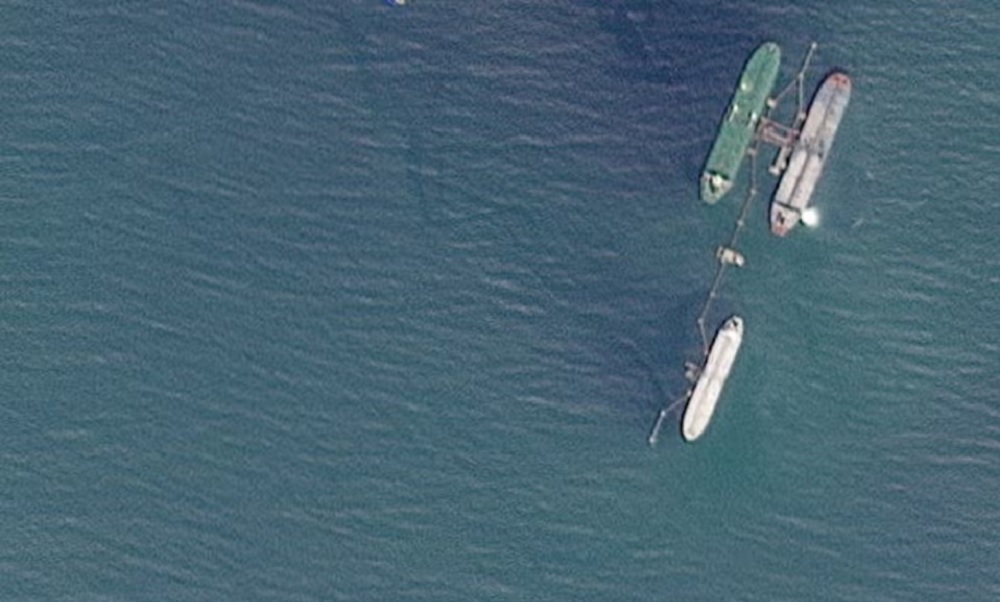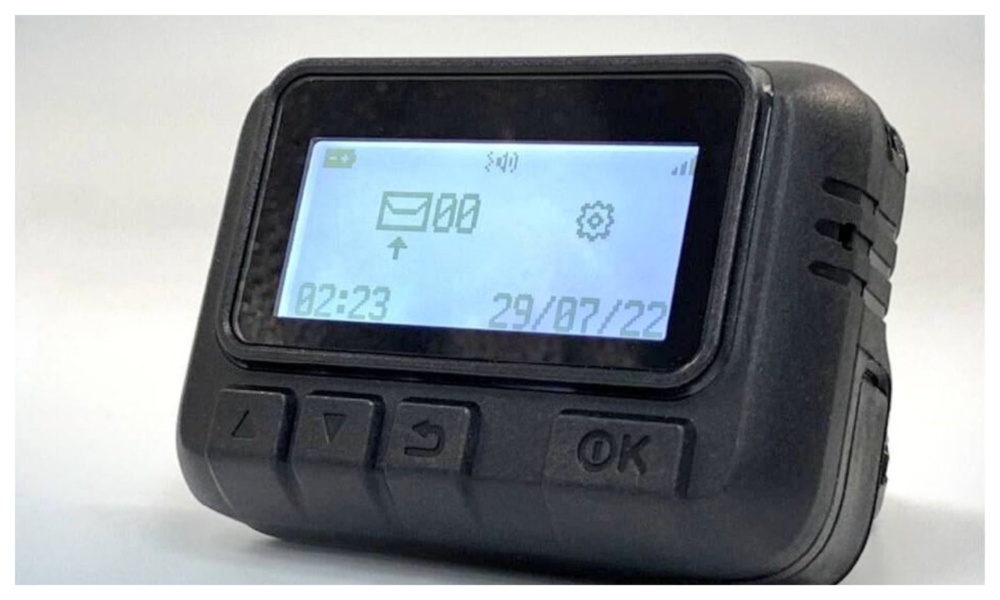World
Israel planted explosives in 5,000 Hezbollah pagers, say sources
The senior Lebanese security source identified a photograph of the model of the pager, an AP924, which like other pagers wirelessly receive and display text messages but cannot make telephone calls

Israel’s Mossad spy agency planted explosives inside 5,000 pagers imported by Lebanese group Hezbollah months before Tuesday’s detonations, a senior Lebanese security source and another source told Reuters.
The operation was an unprecedented Hezbollah security breach that saw thousands of pagers detonate across Lebanon, killing nine people and wounding nearly 3,000 others, including the group’s fighters and Iran’s envoy to Beirut.
The Lebanese security source said the pagers were from Taiwan-based Gold Apollo, but the company said in a statement it did not manufacture the devices. It said they were made by a company called BAC which has a licence to use its brand, but gave no more details.
Iran-backed Hezbollah has vowed to retaliate against Israel, whose military declined to comment on the blasts, Reuters reported.
Hezbollah said in a statement on Wednesday that “the resistance will continue today, like any other day, its operations to support Gaza, its people and its resistance which is a separate path from the harsh punishment that the criminal enemy (Israel) should await in response to Tuesday’s massacre”.
The plot appears to have been many months in the making, several sources told Reuters.
The senior Lebanese security source said the group had ordered 5,000 beepers from Gold Apollo, which several sources say were brought into the country earlier this year.
Gold Apollo founder Hsu Ching-Kuang said the pagers used in the explosion were made by a company in Europe that had the right to use the firm’s brand, the name of which he could not immediately confirm. The company in a statement named BAC as the firm, but Hsu declined to comment on its location.
“The product was not ours. It was only that it had our brand on it,” Hsu told reporters at the company’s offices in the northern Taiwanese city of New Taipei on Wednesday.
The senior Lebanese security source identified a photograph of the model of the pager, an AP924, which like other pagers wirelessly receive and display text messages but cannot make telephone calls.
Gold Apollo said in a statement that the AR-924 model was produced and sold by BAC.
“We only provide brand trademark authorisation and have no involvement in the design or manufacturing of this product,” the statement said.
Hezbollah fighters have been using pagers as a low-tech means of communication in an attempt to evade Israeli location-tracking, two sources familiar with the group’s operations told Reuters this year.
But the senior Lebanese source said the devices had been modified by Israel’s spy service “at the production level.”
“The Mossad injected a board inside of the device that has explosive material that receives a code. It’s very hard to detect it through any means. Even with any device or scanner,” the source said.
The source said 3,000 of the pagers exploded when a coded message was sent to them, simultaneously activating the explosives.
Another security source told Reuters that up to three grams of explosives were hidden in the new pagers and had gone “undetected” by Hezbollah for months.
Hsu said he did not know how the pagers could have been rigged to explode.
Israeli officials did not immediately respond to Reuters requests for comment.
Images of destroyed pagers analysed by Reuters showed a format and stickers on the back that were consistent with pagers made by Gold Apollo.
Hezbollah was reeling from the attack, which left fighters and others bloodied, hospitalized or dead. One Hezbollah official, speaking on condition of anonymity, said the detonation was the group’s “biggest security breach” since the Gaza conflict between Israel and Hezbollah ally Hamas erupted on Oct. 7.
“This would easily be the biggest counterintelligence failure that Hezbollah has had in decades,” said Jonathan Panikoff, the U.S. government’s former deputy national intelligence officer on the Middle East.
Break Your Phones
In February, Hezbollah drew up a war plan that aimed to address gaps in the group’s intelligence infrastructure.
Around 170 fighters had already been killed in targeted Israeli strikes on Lebanon, including one senior commander and a top Hamas official in Beirut.
In a televised speech on Feb. 13, the group’s Secretary General Hassan Nasrallah sternly warned supporters that their phones were more dangerous than Israeli spies, saying they should break, bury or lock them in an iron box.
Instead, the group opted to distribute pagers to Hezbollah members across the group’s various branches – from fighters to medics working in its relief services.
The explosions maimed many Hezbollah members, according to footage from hospitals reviewed by Reuters. Wounded men had injuries of varying degrees to the face, missing fingers and gaping wounds at the hip where the pagers were likely worn.
“We really got hit hard,” said the senior Lebanese security source, who has direct knowledge of the group’s probe into the explosions.
World
Venezuela-US tensions spike in wake of seized tanker as Nobel winner vows change

Venezuelan opposition leader Maria Corina Machado on Friday promised political change after slipping out of the country in secret to collect the Nobel Peace Prize, as the shock waves intensified from the Trump administration’s seizure of an oil tanker earlier this week.
That escalation came on the heels of a large-scale U.S. military buildup in the southern Caribbean as President Donald Trump campaigns to oust Venezuelan leader Nicolas Maduro, pushing relations to their most volatile point in years, Reuters reported.
The effects could ripple through the region, with Venezuelan oil exports falling sharply and crisis-stricken Cuba, already straining to power its grid, at risk of losing supply.
The U.S. seizure of the Skipper tanker off Venezuela’s coast on Wednesday marked the first U.S. capture of Venezuelan oil cargo since sanctions were imposed in 2019.
The vessel is now heading to Houston, where it will offload its cargo onto smaller ships, Reuters reported.
The Trump administration does not recognize Maduro, in power since 2013, as Venezuela’s legitimate leader.
Washington has signalled more seizures are planned as part of efforts to choke off sanctioned oil flows, and subsequently imposed new sanctions on three nephews of Maduro’s wife and six tankers linked to them.
The U.S. military presence in the Caribbean has grown as Trump in recent weeks has discussed potential military intervention in Venezuela, based on accusations that the country ships narcotics to the United States. The Venezuelan government has denied the accusations.
So far there have been over 20 U.S. military strikes in the Caribbean and Pacific against suspected drug vessels this year, in which nearly 90 people have been killed, alarming human rights advocates and stirring debate among U.S. lawmakers.
While many Republicans have backed the campaign, Democrats have questioned whether the campaign is illegal and urged more transparency, including the release of a full, unedited video, opens new tab of strikes on a suspected drug-trafficking boat.
MACHADO DEFIES BAN, URGES TRANSITION
Machado defied a decade-long travel ban and a period in hiding to travel to Oslo on Thursday, noting that she would soon bring the Nobel Peace Prize back home to Venezuela.
She said Maduro would leave power “whether there is a negotiated changeover or not,” vowed she is focused on a peaceful transition, and thanked Trump for his “decisive support.”
Machado is aligned with U.S. hardliners who accuse Maduro of ties to criminal networks – claims that U.S. intelligence has reportedly questioned.
When asked at a press conference in Oslo if she believed U.S. intervention was needed in Venezuela, Machado replied, “We are asking the world to help us.”
Venezuela condemned the tanker seizure as “blatant theft” and “international piracy,” saying it would file complaints with international bodies.
At the same time, Venezuelan lawmakers took a step to withdraw the country from the International Criminal Court, which is currently investigating alleged human rights abuses in the South American country.
Adding to the friction, the Venezuelan government announced the suspension of a U.S. migrant repatriation flight on Friday. A U.S. official countered that deportation flights would continue.
World
Putin arrives in Ashgabat to hold series of meetings

Russian President Vladimir Putin has arrived in Turkmenistan’s capital for a two-day visit.
According to TASS, the presidential aircraft of the Rossiya Special Flight Detachment landed near the presidential terminal of Ashgabat International Airport, commonly referred to as the “small bird” for its distinctive design.
During his visit, Putin will attend an international forum titled “Peace and Trust: Unity of Goals for a Sustainable Future” and hold several bilateral meetings.
The Kremlin has confirmed talks with Turkish President Recep Tayyip Erdogan, while the Iranian Embassy has announced that a meeting with President Masoud Pezeshkian is also planned.
The Ashgabat forum will also be attended by Turkmen President Serdar Berdymukhamedov, along with the presidents of Armenia, Iraq, Kazakhstan, Kyrgyzstan, Uzbekistan and Tajikistan, as well as the prime ministers of Azerbaijan, Hungary, Georgia and Pakistan.
World
Trump launches gold card program for expedited visas with a $1 million price tag

President Donald Trump’s administration officially launched his “Trump Gold Card” visa program on Wednesday to provide a pathway, with a steep price, for non-U.S. citizens to get expedited permission to live in the United States.
The website Trumpcard.gov, complete with an “apply now” button, allows interested applicants to pay a $15,000 fee to the Department of Homeland Security for speedy processing, Reuters reported.
After going through a background check or vetting process, applicants must then make a “contribution” — the website also calls it a “gift” — of $1 million to get the visa, similar to a “Green Card,” which allows them to live and work in the United States.
“Basically it’s a Green Card, but much better. Much more powerful, a much stronger path,” Trump told reporters at the White House. “A path is a big deal. Have to be great people.”
Commerce Secretary Howard Lutnick said some 10,000 people have already signed up for the gold card during a pre-registration period and he expected many more to do so. “I would expect over time that we’d sell, you know, thousands of these cards and raise, you know, billions, billions of dollars,” Lutnick told Reuters in a brief interview.
Lutnick said the gold card program would bring people into the United States who would benefit the economy. He compared that to “average” Green Card holders, whom he said earned less money than average Americans and were more likely to be on or have family members on public assistance. He did not provide evidence for that assertion.
Trump’s administration has pursued a broad crackdown on immigration, deporting hundreds of thousands of people who were in the country illegally and also taking measures to discourage legal immigration.
The gold card program is the Trump version of a counter balance to that, designed to make money for the U.S. Treasury in the same way the president, a former New York businessman and reality television host, has said his tariff program has successfully done.
Lutnick noted that there was also a corporate version of the gold card that allowed companies to get expedited visas for employees they wanted to work in the United States, for a $2 million contribution per employee.
-

 Sport4 days ago
Sport4 days agoILT20: Desert Vipers edge Gulf Giants in historic super over thriller
-

 Latest News2 days ago
Latest News2 days agoMuttaqi: Afghanistan’s progress requires both religious and modern education
-

 Regional4 days ago
Regional4 days agoSix Pakistani soldiers killed in TTP attack in Kurram District
-

 Business4 days ago
Business4 days agoTrade bodies warn almost 11,000 Afghan transit containers stuck at Karachi port
-

 World4 days ago
World4 days agoPowerful 7.6 earthquake hits northern Japan, tsunami warnings issued
-

 Latest News3 days ago
Latest News3 days agoTrump calls Afghanistan a ‘hellhole’ country as US expands immigration restrictions
-

 Sport5 days ago
Sport5 days agoSorkh Poshan Khafi defeats Sarsabz Yashlar 4-0 in Afghanistan Champions League
-

 Sport3 days ago
Sport3 days agoCommanding wins for Arman FC and Sarsabz Yashlar in Afghanistan Champions League

























